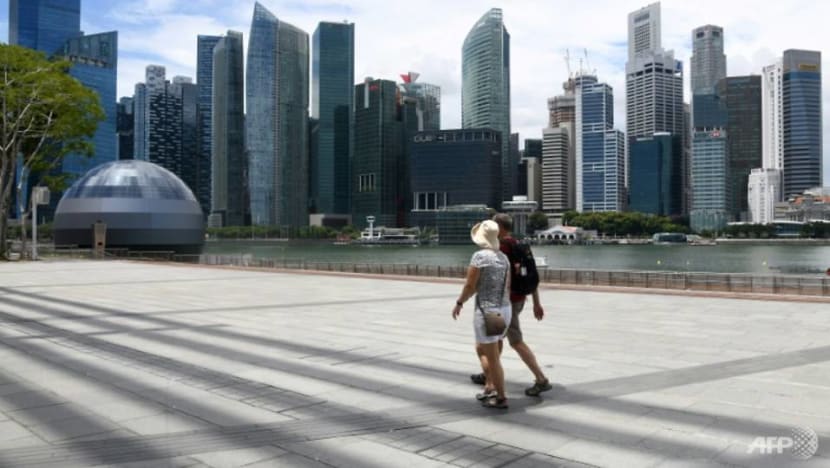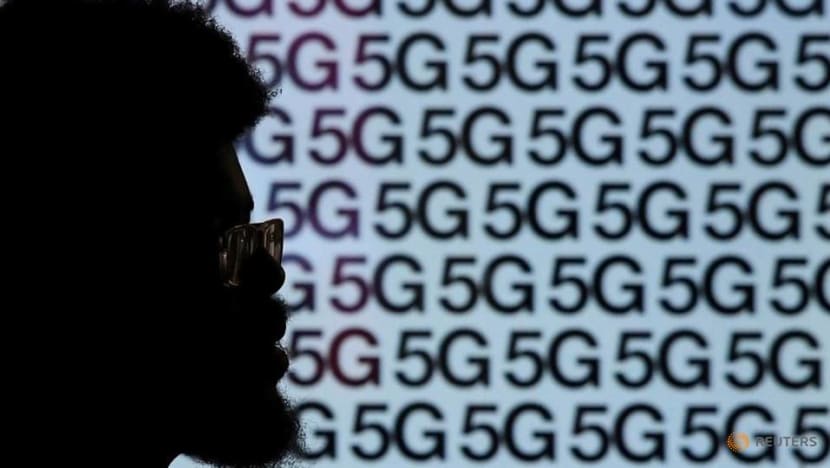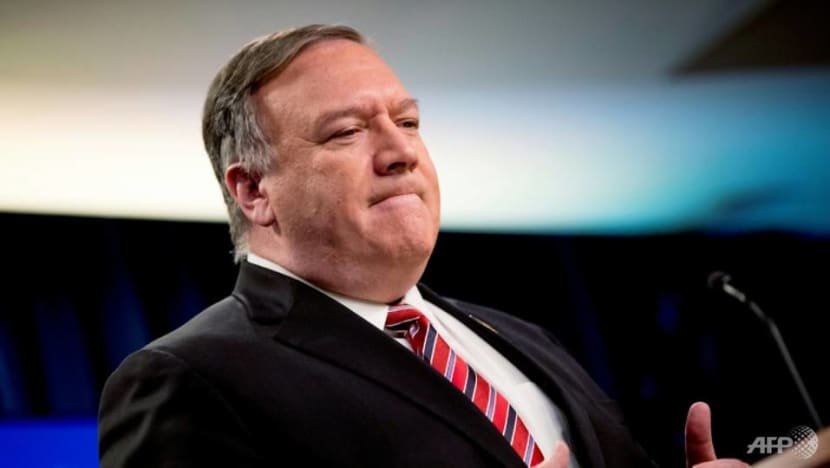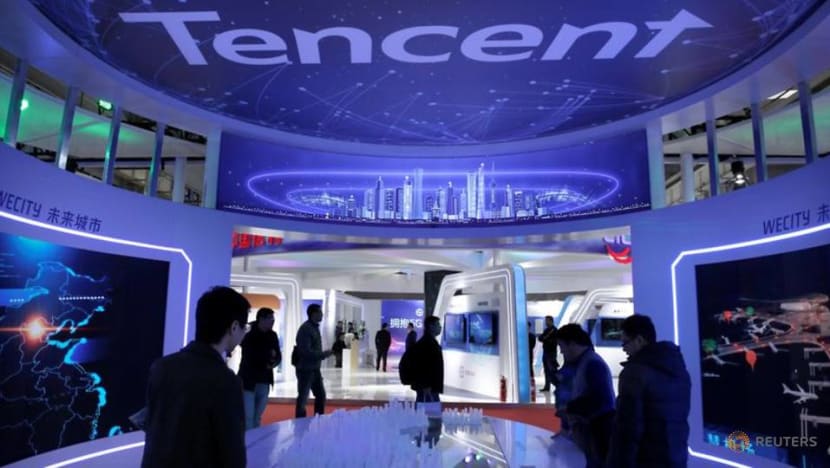commentary Commentary
Commentary: How Singapore will remain a top trading hub in a post-pandemic world
As the world economy collapses, Singapore could face stark choices in forging ahead on trade and growth, while navigating US-China tensions, says Alex Capri.

Trade-reliant Singapore is typically among the first countries to be hit during global crises because of its small and open economy. (Photo: AFP/Roslan RAHMAN)
SINGAPORE: Global commerce has been the lifeblood of Singapore.
Singapore’s success has been tied to an open, connected and functional global economy. But now, the coronavirus pandemic has battered world commerce, which is facing its greatest challenge in a century.
The World Trade Organization is predicting that global trade could contract by as much as 30 per cent from the previous year. For Singapore, the prognosis is even starker: More than a 40 per cent contraction.
The COVID-19 lockdown has dealt an equally painful blow to Singapore’s services sector, with hotels and restaurants operating at a fraction of boom-time capacity, while Singapore Airlines, the nation’s world-class carrier, has grounded more than 90 per cent of its fleet.
All of this begs the inevitable question: Are Singapore’s days as a dynamic global trading hub over?
READ: Commentary: COVID-19 could redefine Singapore’s place in the global economy
READ: Commentary: The brewing discontent with trade and one step to restoring faith in globalisation
The answer lies farther down a long, strenuous road, and depends on three key factors: Singapore’s successful migration into the post-pandemic digital economy, adept navigation of US-China geopolitics and active participation in multilateral frameworks.
THE POST-PANDEMIC DIGITAL ECONOMY
Singapore’s digital DNA is well suited for a post-pandemic economy. Social distancing has spawned new technology-driven ecosystems on the Internet involving fintech, health services, conferencing and educational services, entertainment, cybersecurity and privacy, logistics services, telecommunications, and, of course, e-commerce.
The 2020 Financial Times Asia-Pacific High Growth Companies ranking of 500 firms, for example, included more than 70 Singapore based companies - an impressive number for such a small country. Some notables include Grab (technology), Reddot payment (fintech), Sunseap (energy); Boxgreen (e-commerce), MiRXES (health) and Blue Wireless (telecommunications).
On another positive note, despite coronavirus challenges, Singapore is rolling out nationwide 5G services for deployment by 2025 and beyond, at a cost of billions of dollars.

The Infocomm Media Development Authority (IMDA) recently announced that three of Singapore’s telecoms operators, Starhub, Singtel and M1, had won contracts to build a standalone cloud-based 5G infrastructure.
The logic of forging ahead with 5G reveals several underlying motives. By choosing multiple companies, Singapore avoids having a 5G landscape that features one dominant telecommunications company, thereby avoiding the negative aspects that such an arrangement brings.
Singapore Minister for Communications and Information S Iswaran said: “Our focus has been on overall network resilience and security, and ensuring vendor diversity.”
READ: Commentary: Alibaba makes a whopping US$28 billion bet on its next breakthrough act
READ: Commentary: Huge investments and 5G super highways. How China is powering ahead in the network race
As the standalone 5G network is designed with unique specifications around security features, for example, small and medium-sized tech companies in Singapore will play key roles in designing and building the network.
In the longer term, many of these firms will benefit from 5G capacity-building opportunities in other markets, as and when other countries manage to recover from COVID-19 and develop their own 5G networks.
But another subtle reason to go with a diversified 5G network is based on geopolitics. Singapore must reduce reliance on any one single foreign telecommunications firm, which could pull the city-state into a messy techno-nationalist row involving two of its key partners, the US and China.
AVOIDING A US-CHINA BINARY CHOICE
The coronavirus pandemic has laid bare the extent to which Sino-US relations have deteriorated. This systemic rivalry has reached a tipping point.
The world’s two super powers are fundamentally at odds on terms of trade, technology transfer, basic economic and political ideology, and, of course, China’s military expansion in the South China Sea.
Now COVID-19 has become a flashpoint, with accusations that China had not done enough to prevent the outbreak from getting out of hand and allegations of a Wuhan lab being behind the virus.
LISTEN: Why lifting lockdowns and easing restrictions may be the biggest COVID-19 test facing countries

Singapore finds itself in a precarious position. As it is pinched between two of its most important partners, it will have to perfect the art of avoiding zero-sum, binary-choices, if at all possible.
AMERICAN INFLUENCE
US security and economic ties run deep and long. At over US$244 billion, US companies, are by far, Singapore’s biggest investors. In 2019, they accounted for more than 20 per cent of all foreign direct investment (FDI) in Singapore and have invested more than all other Asian companies combined.
In the manufacturing sector, US FDI in Singapore is almost 50 per cent more than all other Asian investment. In the electronics sector, American firms such as HP and Texas instruments, were the first to invest in Singapore’s nascent tech sector, which is now a key part of Singapore’s future as a vital trade hub, with US tech firms still at the core of complex ecosystems and value chains.
The coronavirus pandemic is accelerating US-China tecno-nationalist tensions. As de-coupling between American and Chinese companies increases, Singapore’s tech sector could see an influx of foreign firms looking to relocate operations from, not only China, but even Taiwan.
As it is doing with other historic allies and partners, the US will lean on Singapore-based tech firms to reduce ties with Chinese telecommunications giant Huawei, something that could directly impact Singapore’s long-term 5G development plans, depending on how self-sufficient Singapore’s local firms can become.
READ: Commentary: A leading chipmaker's expansion here and what it means for Singapore
READ: Commentary: The end of unrestricted commerce and the dawn of the great US-China disentanglement
Similarly, Washington will likely escalate its use of export controls around US semiconductor manufacturing equipment, which could place restrictions on Singapore firms that export microchips or other parts to blacklisted Chinese companies.
This scenario is already unfolding in Taiwan, where Washington is pressuring TSMC, UMC and other Taiwanese semiconductor firms to cut off sales to China.
CHINA’S INFLUENCE
Meanwhile, China remains Singapore’s largest trading partner and number one destination for outbound FDI.
As China continues its post-lockdown economic recovery - especially as the US and the rest of the world lag behind - Singapore’s severely bruised sectors would seem poised to rush into China’s arms.
As Beijing turns to economic stimulus in the construction and infrastructure sectors, for example, Singapore businesses in the engineering, construction and project consultation sectors could get a huge opportunity.
But Beijing is likely to leverage access to its economic recovery in exchange for support of its broader geopolitical objectives in the region. This may include pressing for acquiescence on its South China Sea military activities, and pulling Singapore closer into its techno-nationalist orbit as it pushes China standards and Chinese firms in areas such as 5G, surveillance-tech and data privacy.

Prior to the coronavirus lockdown, China’s growing tourist population had accounted for a significant portion of visitor revenue in Singapore’s hospitality and retail sectors, not to mention its flagship carrier, Singapore Airlines.
In the future, as circumstances allow, Beijing will likely use its lucrative tourism base as a bargaining chip to obtain support for its other strategic objectives in the region.
All of this puts Singapore on very delicate footing as it tiptoes between US and Chinese interests.
SINGAPORE’S PARTICIPATION IN MULTILATERAL FRAMEWORKS
If Singapore is to maintain its global-hub status, it must continue participating in free trade agreements (FTA) that link the city-state to rules-based frameworks with high standards of transparency, sustainability and data privacy.
By participating in free trade agreements such as the Comprehensive Partnership on the Trans-Pacific Partnership and the EU-Singapore FTA, for example - which have deep standards baked in - Singapore achieves maximum connectivity with the world’s leading innovators and will have full access to an expanding global knowledge economy.
By partnering with six other like-minded countries to keep supply chains and trade routes open, Singapore ensures the continued flows of goods and essential supplies, and has a basis from which to build greater connectivity once the outbreak is over.
READ: Commentary: The heavy lifting needed to get Singapore through the COVID-19 slump
READ: Commentary: The brewing concern over jobs and salaries as COVID-19 persists
A post-pandemic digital economy will present collaborative opportunities around another looming crisis management challenge: Climate change. Here, again, in areas like carbon-tracing and clean tech, Singapore has vast potential.
Make no mistake, the post-pandemic road ahead will be long and hard for Singapore.
But it just might navigate the geopolitical landscape adeptly enough to avoid costly binary choices on the US-China matter, and, in the long term, continue to set the standard for a global trading hub.
LISTEN: COVID-19: Aviation and flying never ever the same again
BOOKMARK THIS: Our comprehensive coverage of the coronavirus outbreak and its developments
Download our app or subscribe to our Telegram channel for the latest updates on the COVID-19 outbreak: https://cna.asia/telegram
Alex Capri is Visiting Senior Fellow with the Department of Analytics & Operations at NUS Business School.















